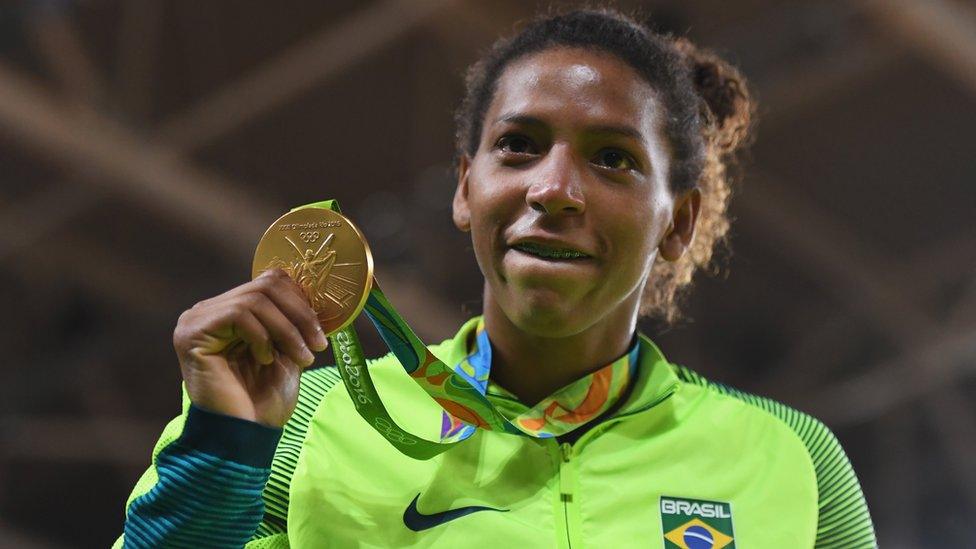Why Simone Manuel's Olympic gold medal in swimming matters
- Published
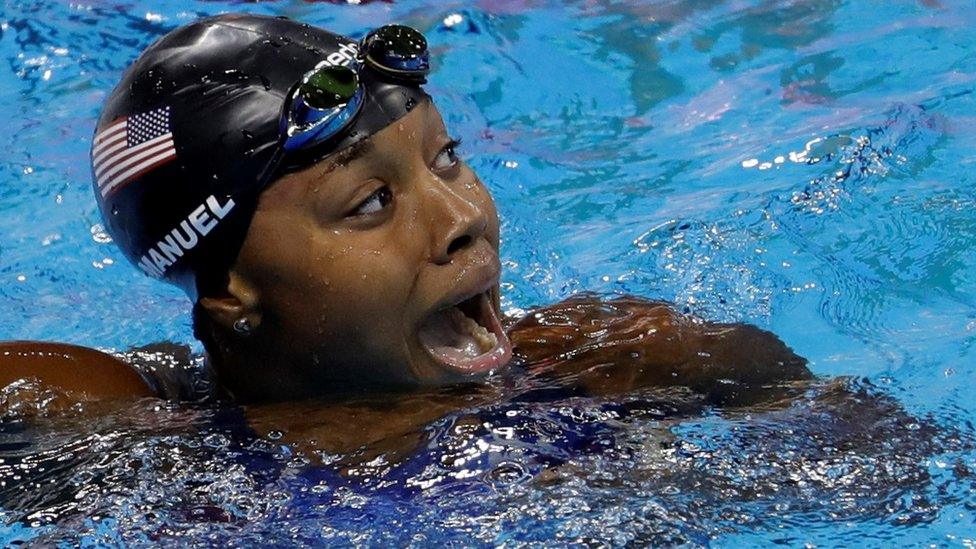
Despite her historic achievement, Manuel stressed she did not want to be known as "Simone, the black swimmer"
Records, as the sporting cliche goes, are there to be broken, but while Simone Manuel's Olympic record time in the women's 100m freestyle final will eventually be surpassed, she achieved a first that no-one can take away.
Touching home at the end of a remarkable race, Manuel became the first black female swimmer to win an Olympic gold. She said she hoped her victory would encourage greater diversity in her sport.
"This medal is not just for me, it's for some of the African-Americans who have been before me and been inspirations," she said.
"I hope I can be an inspiration for others. This medal is for the people who come behind me and get into the sport."
Here is why Simone Manuel's win is so significant.
African-Americans have been shut out of swimming pools for generations
Swimming pools have been a racially sensitive flashpoint in the US for generations. African-American people were often denied access to pools in the segregation era, and even after its abolition white people found other ways to exclude them. Nor has building pools for black areas been a priority.
Jeff Wiltse, in his book Contested Waters: A Social History of Swimming Pools in America, argues that white anxieties over contact with black people fuelled this historic lack of integration at US swimming pools.
Parents who do not swim are often unlikely to teach their children, and the legacy today is that a disproportionate number of African-American children cannot swim - USA Swimming puts the figure at 70%, external.
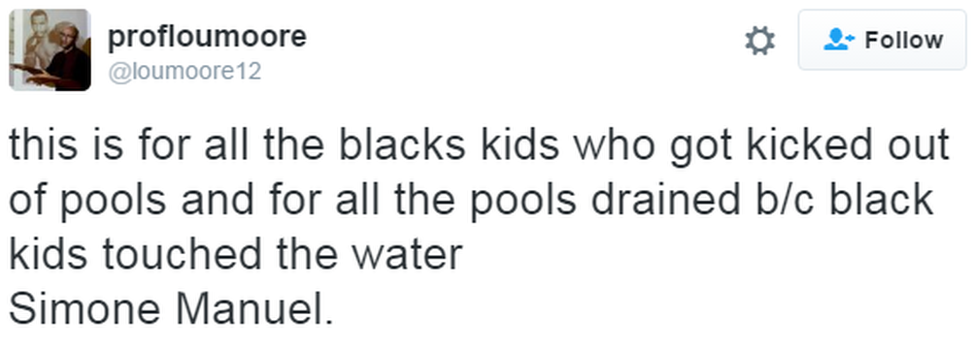
Swimming lessons still are not compulsory in the US, something USA Swimming wants to change. Despite all this, outliers can emerge.
Cullen Jones's mother, for instance, took him to swimming lessons after he nearly drowned at a theme park aged five. By eight he was swimming competitively. At the 2008 Olympics, he won gold as part of the US 4×100m freestyle relay team.
It has taken a long time to get here
Black winners in swimming events remain a rarity. The Netherlands' Enith Brigitha became the first black swimmer to win a medal, coming third in the 100m freestyle at the 1976 Montreal Olympics behind two competitors later found to have used doping, according to the International Swimming Hall of Fame (ISHOF), external.
The next breakthrough came in the 1988 Seoul Olympics, when Anthony Nesty of Suriname became the first male swimmer of African descent to win gold.
A select few black swimmers have represented the US: Anthony Ervin was first, at Sydney in 2000, while four years later at Athens, Maritza Correia became the first female medal winner. Lia Neal has also won medals.
Manuel cited Jones, Neal and Correia as trailblazing figures in her comments after her victory.

Swimming still has a diversity problem
Why hasn't there been a black female champion swimmer until now? A number of factors are at play.
Particularly in developing countries, access to top-class or even basic facilities remains difficult.
Lack of participation at elite level feeds into a lack of participation at grassroots. Without role models like Manuel, there may be an impression among would-be swimmers that "this isn't for me".
Then there is the thorny issue of nature vs nurture in athletes.
The crude stereotype, that black people are less buoyant than white people, has been debunked, but it remains the case that certain sports are seen as the preserve of particular races.
Such perceptions are deeply culturally ingrained, but pioneers like Manuel can help shift them.
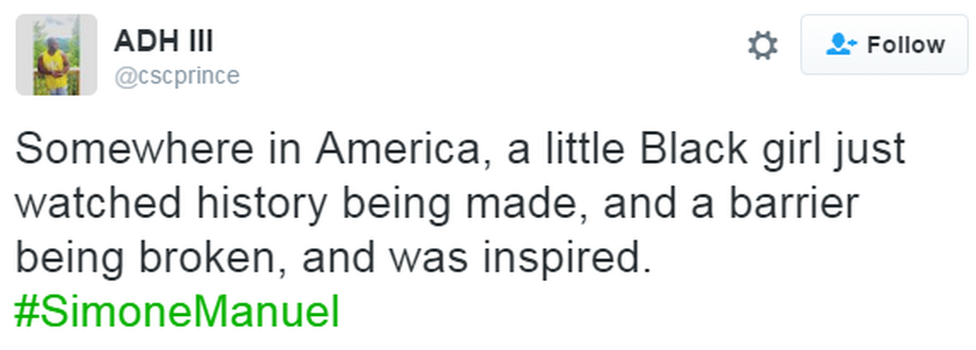
'I want to win just like everybody else'
In any other circumstances, the post-race chatter would be about the event itself, a dramatic dead heat. Manuel shared her gold medal, and an Olympic record, with her 16-year-old opponent, Canada's Penny Oleksiak.
Speaking afterwards, Manuel looked forward to a time when the focus would be on sport and not on her race.
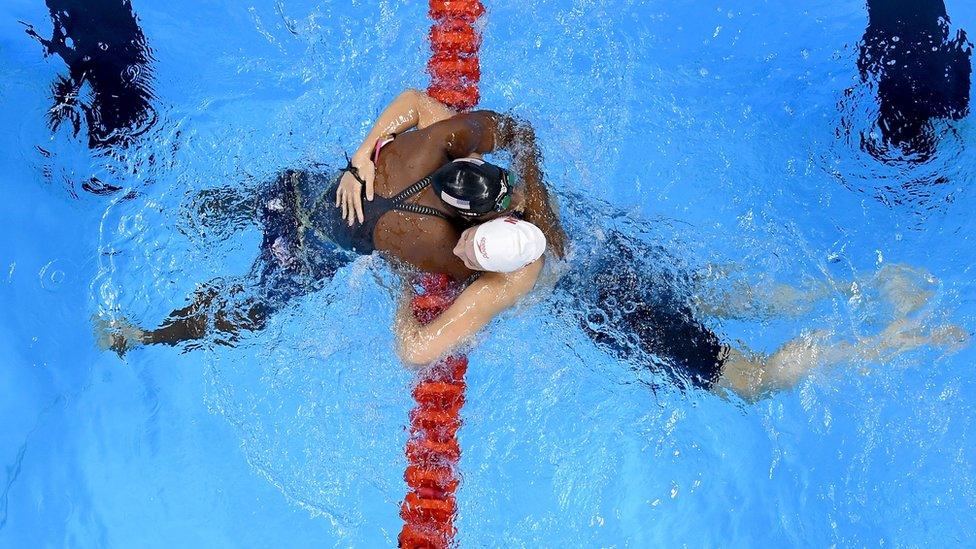
Manuel and Oleksiak embraced in the pool after winning their joint gold
"I would like there to be a day where there are more of us and it's not 'Simone, the black swimmer,''' she said,
"The title 'black swimmer' makes it seem like I'm not supposed to be able to win a gold medal or I'm not supposed to be able to break records and that's not true because I work just as hard as anybody else. I want to win just like everybody else.''
- Published9 August 2016
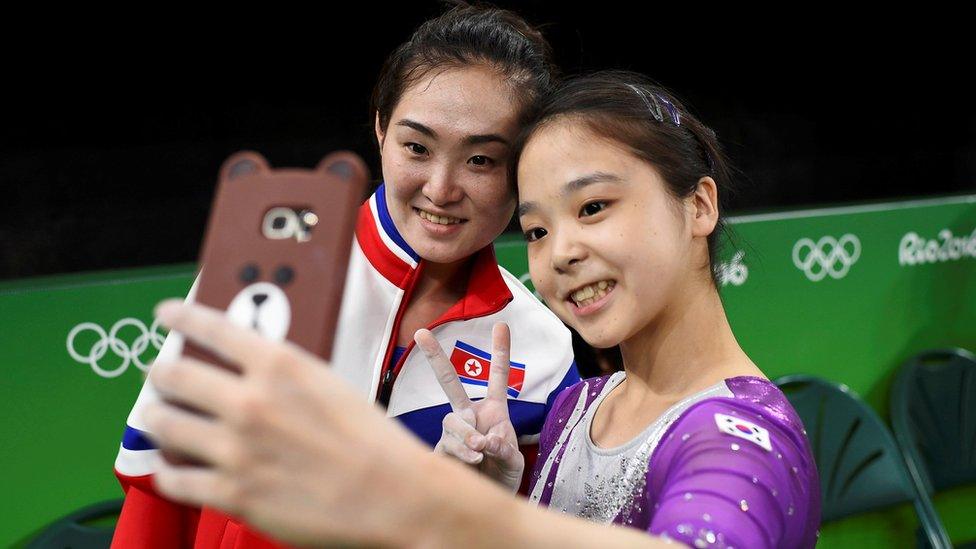
- Attribution
- Published9 August 2016
